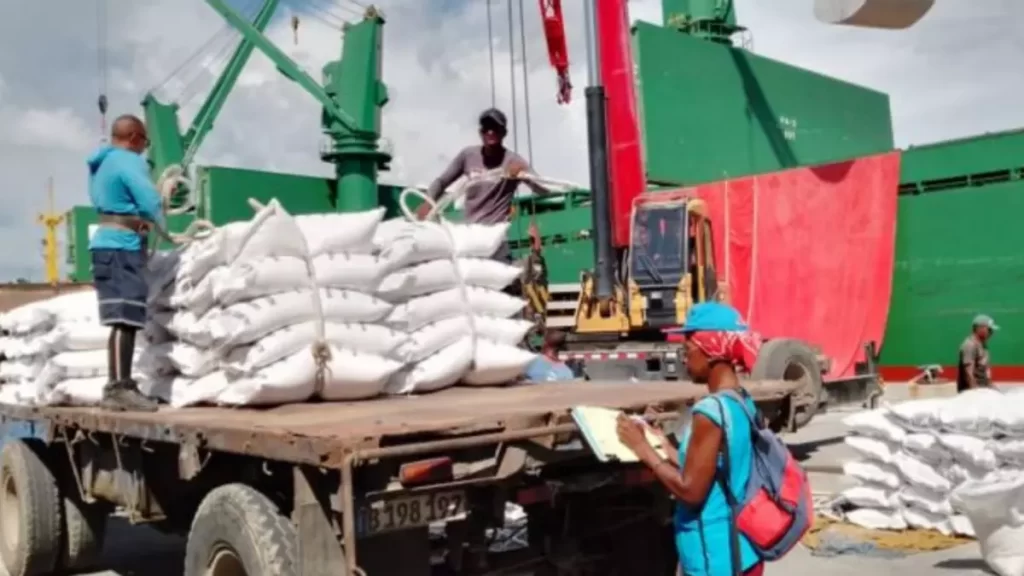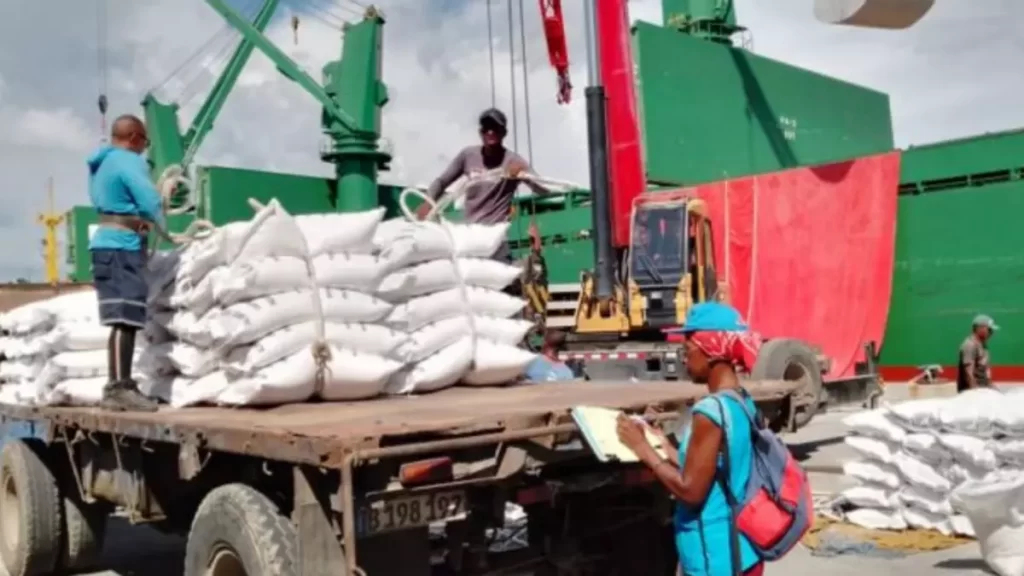
14ymedio, Madrid, 5 April 2024 — This Thursday morning, 11 ships full of food remained offshore, unable to enter Cuban ports due to the payment problems faced daily by the Government, said the first Deputy Minister of Foreign Trade and Foreign Investment, Oscar Pérez-Oliva Fraga, in an appearance on Cuban President Miguel Díaz-Canel’s new TV program, Desde la Presidencia (From the Presidency).
The second edition of the program “Hello, President” hit the target by addressing the main concerns of citizens, as the leader said: the fuel seven days ago, and yesterday the basic family basket, sold through the rationing system.
The background is different for each. If last week the issue of energy ended up leading to the alleged responsibility of the United States in the promotion of the March 17th (’17M’) protests, this Thursday it went from the lack of coffee to the alleged effects that Washington’s “financial persecution” has on a basic basic basket that continues to die, but without a death certificate.
Yesterday’s program revealed that at least until June, the products are being negotiated for all Cubans on the Island
Díaz-Canel, an optimist, said that some provinces have good indicators in food production, and he cited the bean in Cienfuegos as an example. He added that “we will be moving to a fairer distribution system, where we focus on the fundamentals of the basket subsidized to people who are most disadvantaged (…) guaranteeing not a subsidy to products but a subsidy to people.”
This mantra has been repeated since 2012, when Raúl Castro pronounced it as an objective of the State and, despite the fact that last December Prime Minister Manuel Marrero resumed it when — without pronouncing the end of the universal ration book — it was announced on yesterday’s program that at least until June, the products for all Cubans on the Island are being negotiated.
The president-presenter briefly summarized the situation of the basket, about which, he admitted, the population has a “very negative” opinion. The problems are four, he said: the “fractionation” (more colloquially, the constant lack of products), the quality (bad), the composition (increasingly leaner) and how to ensure it. In addition, he opened with a commitment that April and May will be better than the last months of 2023 and early 2024, although the population no longer remembers the time before the basket began to be almost a specter.
The ministers – Betsy Díaz Velázquez of Internal Commerce, also participated in the talk – offered some data, such as the $230 million per month that it costs to supply the country’s 12,000 ration stores. Above all, it was a tedious and detailed inventory of missing or present products. There was talk of salt, eggs, flour, coffee, peas, milk, and of one province after another, including delays and forecasts.
But the most interesting part was the arguments to explain Cuba’s inability to buy: the energy and financial crises and Washington’s sanctions. “This morning, when we were analyzing


